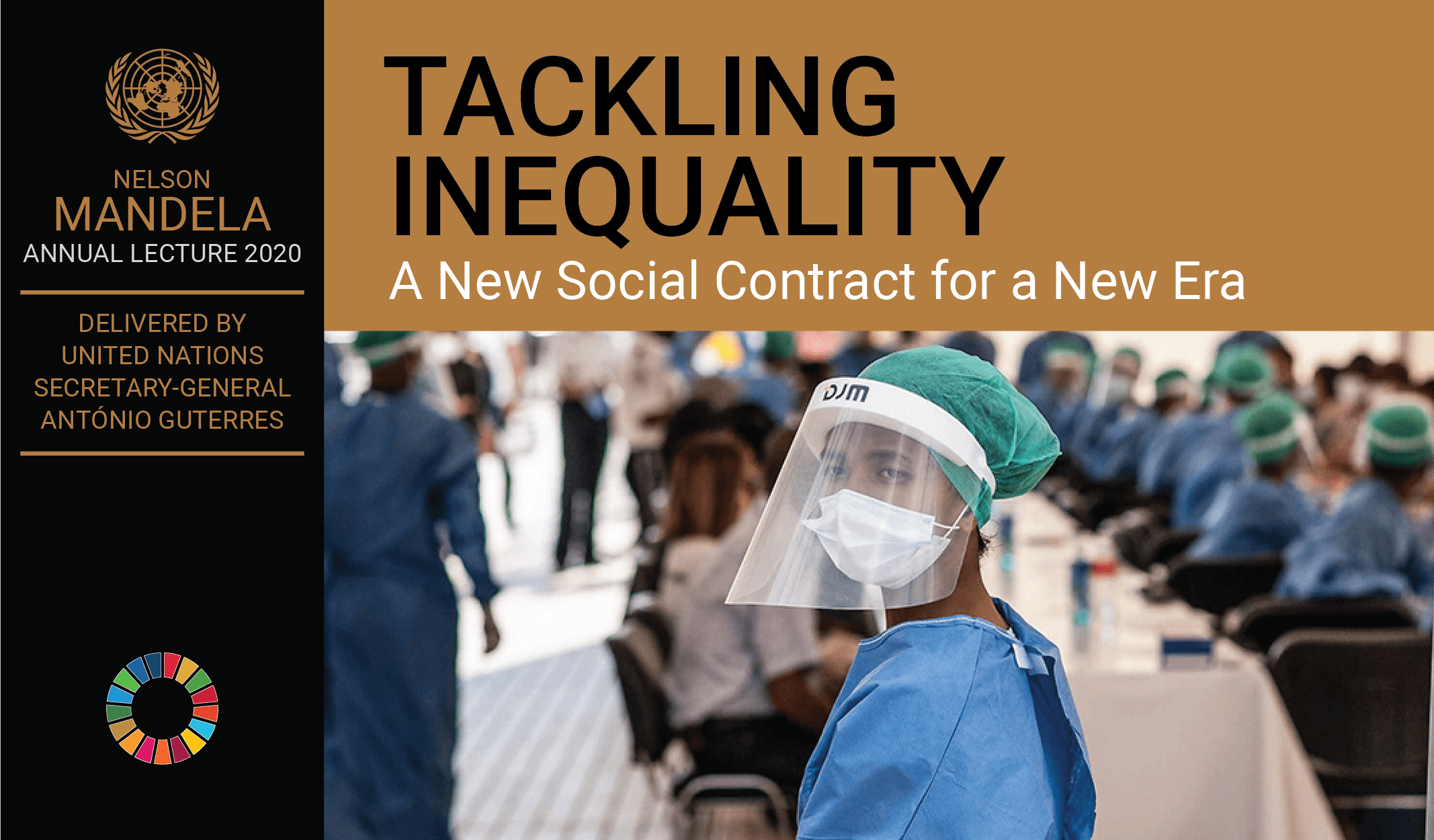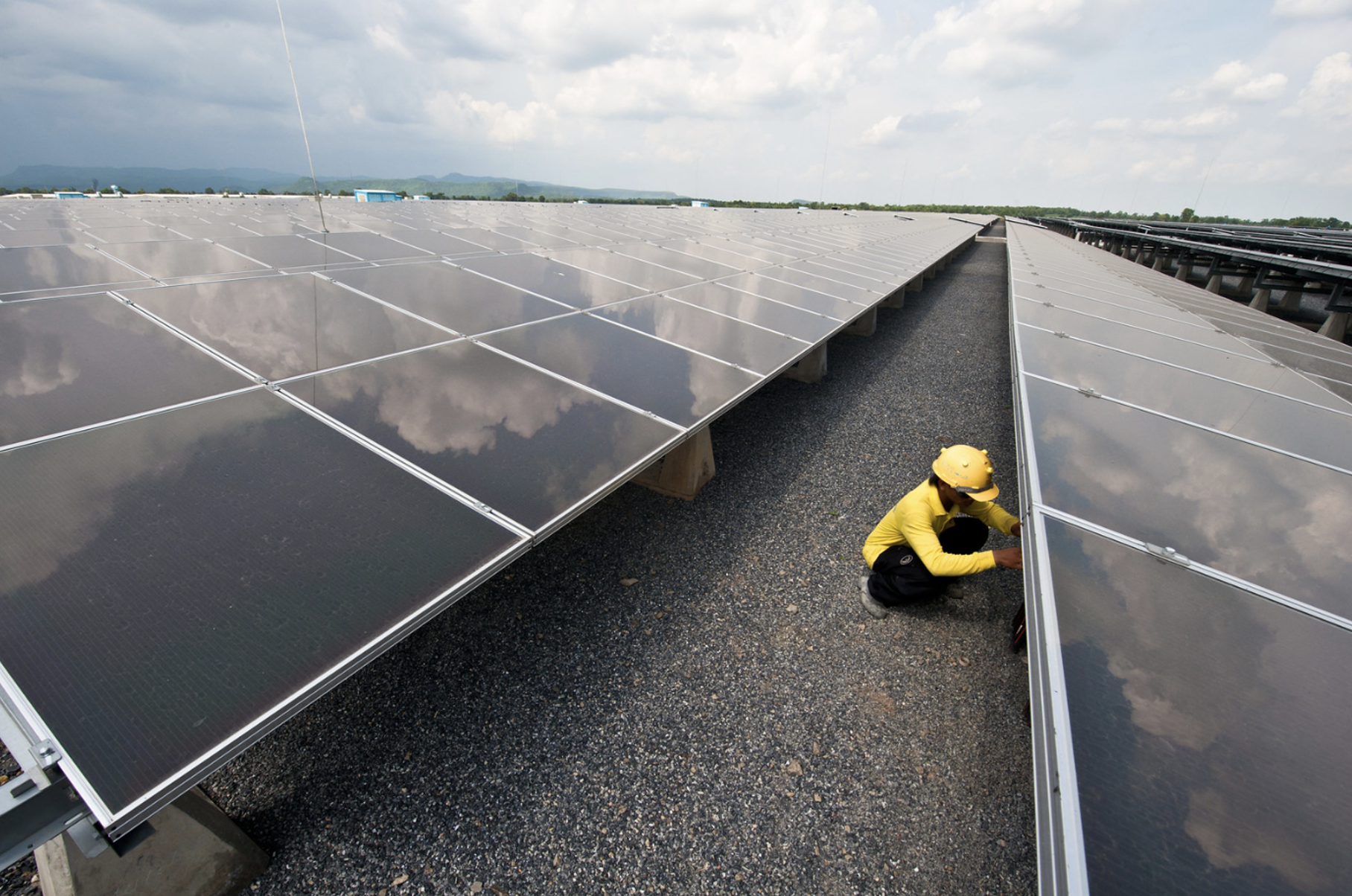“The response to the pandemic, and to the widespread discontent that preceded it, must be based on a New Social Contract and a New Global Deal that create equal opportunities for all and respect the rights and freedoms of all.” – UN Secretary-General António Guterres
The pandemic has demonstrated the fragility of our world. It has laid bare risks we have ignored for decades: inadequate health systems; gaps in social protection; structural inequalities; environmental degradation; the climate crisis.
On Nelson Mandela International Day, 18 July, UN Secretary-General António Guterres delivered the 18th Nelson Mandela Annual Lecture.
In his speech “Tackling the Inequality Pandemic: A New Social Contract for a New Era”, the Secretary-General took aim at the various layers of inequality that are being exposed and exacerbated by the COVID-19 pandemic. He outlined the threat posed to our well-being and our future by historic injustices and current trends, from colonialism and patriarchy to racism and the digital divide, and made concrete recommendations for a more equitable, just and sustainable way forward in line with the Sustainable Development Goals.
THE FACTS
According to the Sustainable Development Goals Report 2020, the COVID-19 pandemic has deepened existing inequalities, hitting the poorest and most vulnerable communities the hardest. It has also further entrenched existing patterns of discrimination and stigma, with reports emerging from many countries of discrimination against different groups. The UN Secretary-General has called for solidarity with the world’s most vulnerable who need urgent support in responding to the worst economic and social crisis in generations.
COVID-19 is also exacerbating inequalities for women and girls across every sphere – from health and the economy, to security and social protection. Women are on the front-lines in fighting the coronavirus, accounting for nearly 70 per cent of health and social workers globally. Women’s unpaid care work has increased significantly as a result of school closures, and nearly 60 per cent of women work in the informal economy, which puts them at greater risk of falling into poverty. The pandemic has also led to a steep increase in violence against women and girls.
Meanwhile, climate change is still affecting every country on every continent. 2019 was the second-warmest year on record and the end of the warmest decade (2010–2019). It is disrupting national economies and affecting lives. Weather patterns are changing, sea levels are rising, and weather events are becoming more extreme. Recovery from COVID-19 needs to go hand-in-hand with climate action. Climate change is not on hold. 2020 remains critical for making progress on the climate emergency and halting biodiversity loss.
A WAKE-UP CALL
The pandemic is an unprecedented wake-up call, laying bare deep inequalities and exposing precisely the failures that are addressed in the 2030 Agenda for Sustainable Development and the Paris Agreement on climate change.
Leveraging this moment of crisis, bold steps can steer the world back on track towards the Sustainable Development Goals. This is a time for change, for a profound and systemic shift to a more sustainable economy that works for both people and the planet.
The Sustainable Development Goals provide a vital framework for a recovery from COVID-19 that leads to greener, more inclusive economies, and stronger, more resilient societies. To read more about each of the goals, click here.



